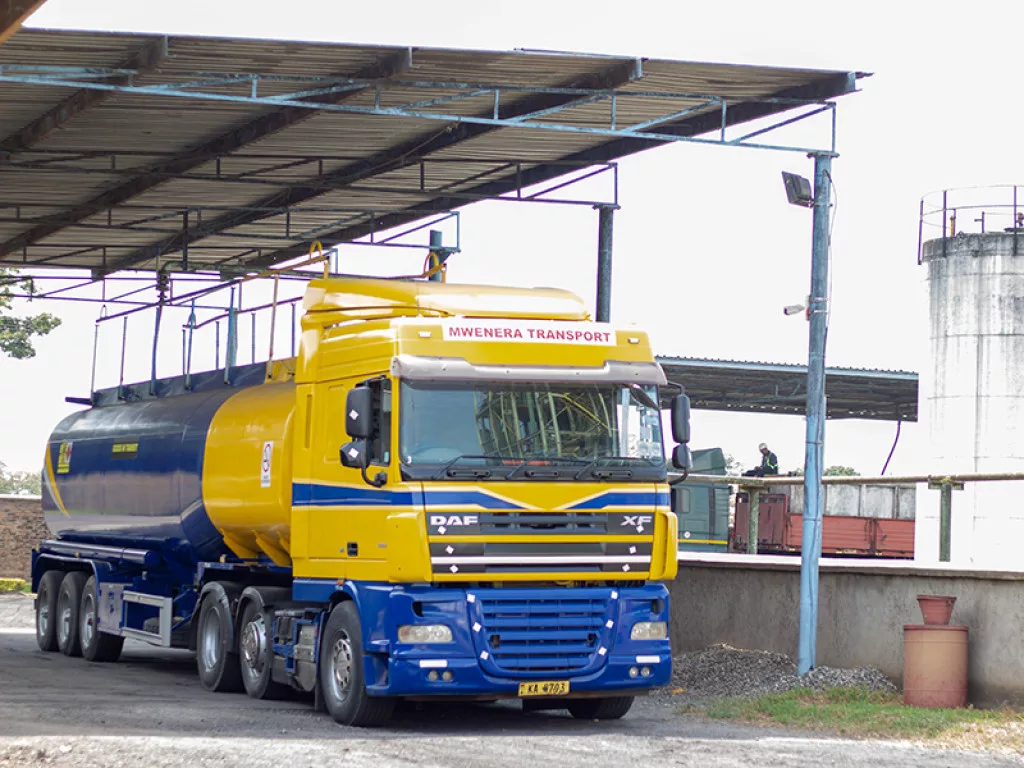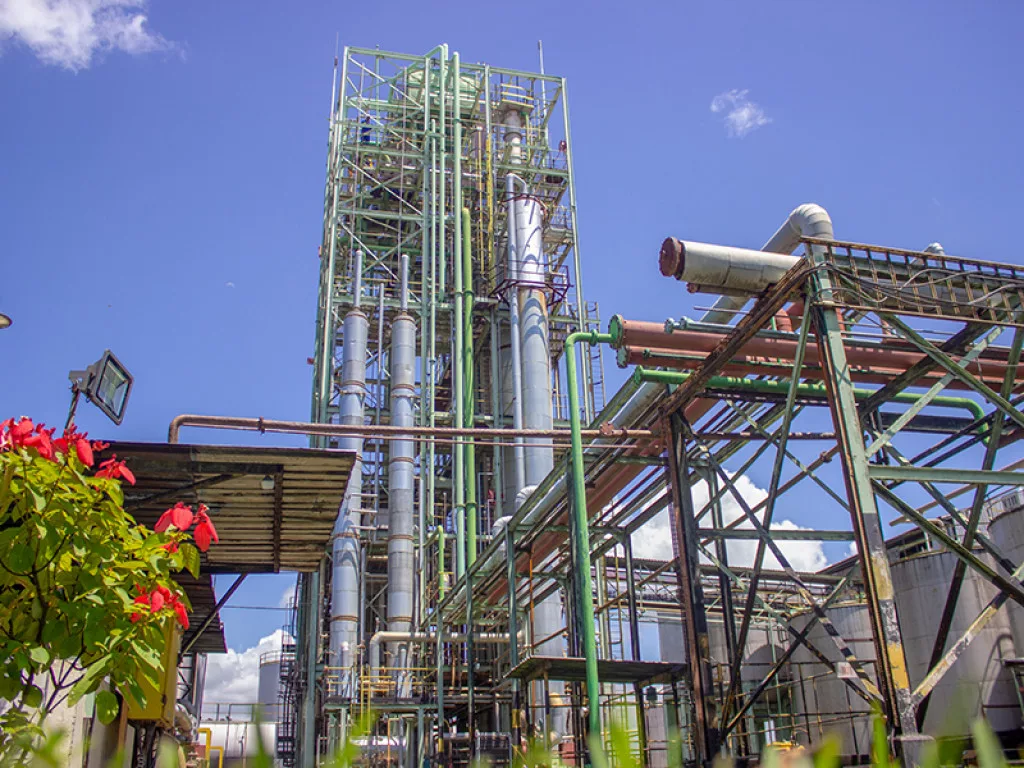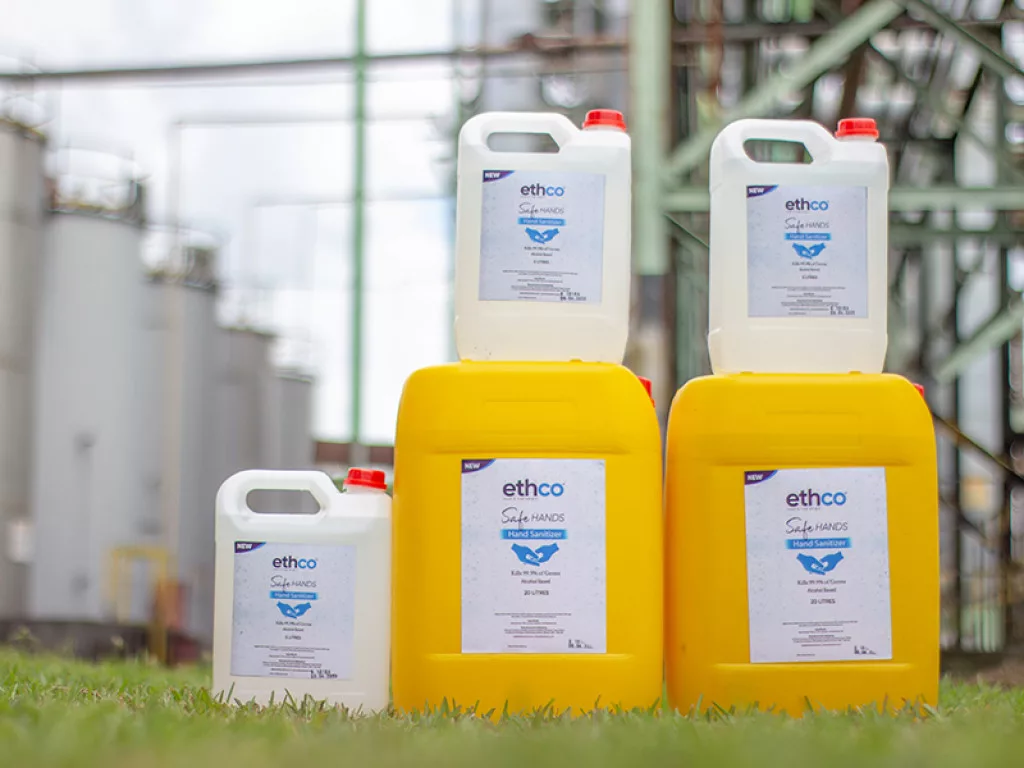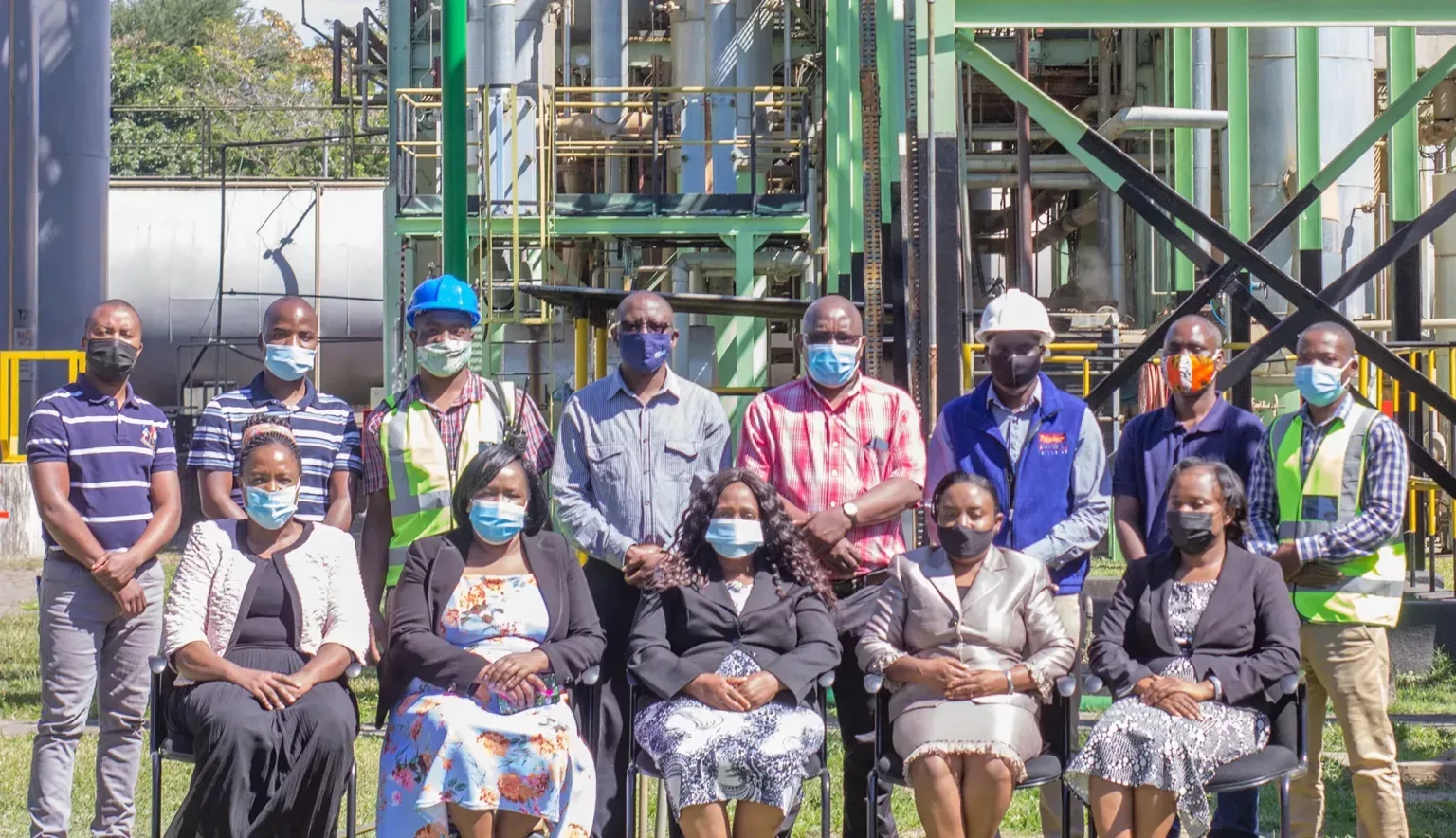CEO of Ethanol Company Limited, Lusubilo Chakaniza, discusses diversification and increasing visibility for Malawi’s premier ethanol manufacturer.
INTRODUCTION
“We are the pioneer producers of fuel ethanol, food grade ethanol and industrial ethanol in Malawi,” states Lusubilo Chakaniza, CEO of Ethanol Company Limited, or EthCo for short.
In Malawi, ethanol is a precious resource with the potential to combat the nation’s energy vulnerabilities, where just eight percent of the population live with access to the electricity grid, whilst further fuelling the domains of transport and cooking.
In the wake of continent-wide electrification mandates and environmental sustainability agendas, Africa is awakening to the potential of ethanol. As Chakaniza attests, “the fuel ethanol industry has largely stayed in its infancy, dormant across Africa for many years as most countries have not adopted policies to use ethanol as a petrol blend or standalone fuel, as is the case in Europe and America.”
“However, in recent years, some countries have introduced blending mandates, thereby significantly increasing the footprint from where it was 10 years ago,” she goes on to comment.
Increasingly recognised as a biofuel for transport, a higher reliance on ethanol translates to less economic vulnerability for Malawi, as a major importer of fuel. This economic vulnerability has been previously highlighted in the 1970’s, as Malawi suffered extreme oil price shocks triggering a nationwide energy crisis. It was from this problematic context that EthCo was born, as the country’s first distillery to be commissioned in 1982 in response to this dilemma.
Nevertheless, challenges within the industry prevail, due to shortages and rising costs in the primary feedstock of ethanol – molasses. As such, EthCo is strategically located in close proximity to the Dwangwa Sugar Mill, and until the recent years, only operated seasonally, in alignment with the sugar milling season with ‘selling season’, running from June to December each year.
“EthCo is located on the Dwangwa Sugar Estate in the lakeshore district of Nkhotakota, central Malawi,” Chakaniza informs us. “Our plant currently runs on a seasonal basis due to inadequacy of molasses as a critical raw material and effluent management issues during the rainy season. This enables us to use only 67 percent of our installed capacity.”
Now, with the establishment of a new sugar mill in Salima, some 140km away from the distillery, the selling season has been extended. EthCo are also able to import molasses from neighbouring Zambia to cater for supply during the lean period between January and May to help combat these challenges, however the advantages of these two sources are only temporal, since there is no guarantee of continued supply due to the supplier’s own plans for diversification and pricing dynamics.
“We have in the history of our 40 years operations maintained good relations with our strategic partners, and this has resulted in successful pricing agreements to enable the creation of shared value”
Lusubilo Chakaniza, CEO, EthCo
Today, EthCo specialises in the production and sale of fuel ethanol, extra neutral alcohol, and rectified alcohol. EthCo also sell unprocessed carbon dioxide to the newly established Carbon Dioxide and Allied Products Company, in which EthCo has a 30 percent shareholding.
Chakaniza herself found her way into the industry following an academic background that led to her embarking on a career as a university lecturer in Physics and Energy, before her interest was piqued by ethanol production.
“I joined Ethanol Company as a management trainee focusing on ethanol plant optimisation and the control and integration of a safety, health and environmental management system. I was able to capitalise on my expertise in thermodynamics and energy management to quickly learn the chemical engineering concepts used in ethanol manufacturing,” she tells us.
“Over the years I rose through the ranks from working as a shift and safety health and environment coordinator to a process engineer, to Production Manager and became CEO of the Company in 2014.”
Now, Chakaniza is well-positioned at the helm of the wholly Malawian owned enterprise, with a lean staff establishment of 58 employees. Despite these challenging industrial headwinds, EthCo maintains their longevity at the forefront of this space, serving Malawi’s ethanol needs and leveraging their strategic position to streamline inbound logistics on behalf of their customers.

PREMIUM PRODUCTS
EthCo specialise in a range of ethanol related products. “EthCo’s current headline product is extra neutral alcohol, a food grade ethanol that is used for liquor production,” Chakanizaexplains.
“A number of beverage alcohol plants have emerged in the recent years, as the demand for liquor grows amidst a growing middle income and young population,” she observes. Despite this, EthCo remains responsible for Malawi’s entire supply of potable alcohol, for both the beverage and pharmaceutical industries.
EthCo’s foray into beverage production is complimented by the company’s shareholding in an associate firm that purifies and liquefies the CO2 produced from the ethanol distillery for use in the soft-drinks bottling and fire-fighting industries.
The company serve the needs of a range of markets, selling fuel ethanol to oil marketing companies across Malawi for blending with petrol. Unlike other conventional fuel ethanol production facilities, EthCo’s fuel ethanol is produced from the raw alcohol that is extracted during extra neutral alcohol production, the Company’s headline product.
“Extra neutral alcohol is sold to various liquor manufacturers within the country and some export customers in the Eastern and Southern Africa region. Hand sanitisers and surface disinfectants are largely sold to various corporate clients, with a small portion ending up on the retail market,” Chakaniza outlines.
“By design and according to need, the company also produces small volumes of industrial ethanol that is mainly used by the paints and plastics industry.”
As Malawi’s leading producer of multiple grades of ethanol, EthCo ensure that stringent management systems are in place to guarantee the consistent premium quality of their products. All manufacturing operations adhere to strict standards of plant operations, qualityand safety, with close monitoring in place to ensure a high degree of control is maintained over production to guarantee high quality. Strict risk management and health and safety regulations are also in place to safeguard the welfare of employees.
“The system is currently externally audited and certified for ISO 9001:2015 (Quality), ISO 14001:2015 (Environment) and ISO 45001:2018 (Occupational Health and Safety).
“This enables us to ensure that our operations, processes, products and services provided comply with customer and consumer safety requirements, company requirements, applicable legal and other requirements. Further to this, we are able to provide appropriate leadership and resources for implementation and continual improvement of our processes to effectively manage both the upside risks (opportunities) and downside risks (threats) in line with our strategy,” Chakaniza explains.
Whether in the fields of industrial chemicals, beverage alcohol, or fuel, EthCo’s longstanding supplier relationships are an integral component to enabling this commitment to quality, by fostering mutually beneficial relationships with key raw material and process chemical suppliers, equipment and spare parts providers and service providers.
As Chakaniza elaborates, “just like any other manufacturing operation, most critical to our success is meeting customer expectations in terms of committed sales volumes as well as quality of our products. This can only happen if there is no disruption in production due to inadequate raw materials and plant downtime due to lack of spare parts or poor equipment service.”
“We have in the history of our 40 years operations maintained good relations with our strategic partners, and this has resulted in successful pricing agreements to enable the creation of shared value,” she comments.
“Our transparent selection process and ethical dealing with these partners includes timely payments for the materials and services they offer, which is always an important factor to ensure continued healthy relationships.”


REFINING INNOVATION
EthCo are fully committed to achieving excellence through proactively addressing customer’s needs and requirements.
This means effectively identifying and developing customised solutions in line with these varying needs.
EthCo’s latest addition to their diversified portfolio of products is indicative of the spirit of transformation and adaptation that is at the core of the company, thereby maintaining their relevance within chemical manufacturing.
“As part of its diversification strategy and in response to the global COVID-19 pandemic, the company has also introduced hand sanitiser and surface disinfectant amongst its product range,” Chakaniza explains.
This is further evidenced by the implementation of EthCo’s ‘idea system’ – a value improvement and innovation programme that is part of the company’s “growth through volumes and diversification strategy”.
“This idea-based system is critical to the successful implementation of our strategy, and we have, over the past three years been able to deliver tremendous improvements as we continually reengineer the processes for better overall performance for the business,” Chakaniza comments.
“We have also recently launched a focused organisational culture programme in which our keystone habits have been defined and we believe this is critical to the enhancement of our coordinated conduct and delivery on our wildly important goal to improve the net promoter score for our business.”
This ensures that the company keeps pace with an evolving industry, allowing EthCo to venture into unchartered waters. The processes behind ethanol production have undergone significant transformation during the course of EthCo’s 40 years of operation.
Within the course of Chakaniza’s own tenure at the company, witnessing such innovations and developments has presented an “exciting journey” that she recognises as a “privilege”. This includes the integration of new equipment and technology dedicated to plant improvement and the development of customised solutions, primarily concerning the departure in 2008 from the typical azeotropic form of distillation for fuel ethanol production, meaning that the plant was effectively revamped to a multi-effect extractive distillation unit for extra neutral alcohol production.
“The excitement in the industry revolves around the way the ethanol production technology has been improved over the years in keeping with global benchmarks and standards in production efficiencies as well as good quality, safety, health and environmental management practices.
“The fuel ethanol production process has transitioned from the traditional azeotropic techniques of dehydrating the product to a more environmentally friendly and safer molecular sieve technology.”
Today, this ongoing pace of innovation truly culminates in the development of EthCo’s new effluent treatment plant, designed to combat the challenges outlined that the industry faces.
“We have over the years, been transitioning towards covering the raw material supply gap in order to enable full capacity utilisation and the continuous run of the plant throughout the year, as well as future expansion to increase the installed capacity beyond the 18 million litres of ethanol per year which we can ably produce if we had no raw material supply and effluent management constraints.
“The effluent treatment plant is hence our first step in overcoming the low-capacity utilisation challenge, after which we will implement a backward integration strategy that will enable us to install a syrup mill that will crush sugarcane into syrup for ethanol production, thereby supplementing the molasses that we currently use as raw material for ethanol production,” Chakaniza explains.
The plant represents EthCo’s commitment to their environmental management plan as part of their climate change and green environment initiative, whereby the effluent will be processed into organic fertiliser.
The spirit of innovation and transformation is also championed by EthCo’s employees, who are consistently rewarded for their ideas and encouraged to think ‘outside of the box’ regardless of their role, whilst striving to aim for higher positions within the company’s hierarchy. This is embedded into the company’s structure, with EthCo providing training and support to all staff in line with their passion and skills.
“We empower employees to implement ideas within their scope of influence, while those requiring capital budgets are escalated for consideration as part of annual operating plans.
“We recognise and reward innovation through our performance related incentive bonus scheme and other intermediary non-monetary rewards or thank you interventions,” Chakanizatells us.
Drawing to a close, Chakaniza emphasises how increasing EthCo’s visibility is very much on the horizon, tying into the company’s wider vision of increasing turnover threefold by 2023, whilst growing stakeholder value. During the course of 2020, coinciding with the introduction of the company’s hand sanitiser product, EthCo have amplified their brand awareness with the launch of a new logo and tagline. With a fresh brand image and leading with the motto, ‘That’s the Spirit’, through this strategic move EthCo demonstrate the exciting notion of reinvention that will carry them into the future, whilst retaining the foundational qualities of a world-class supplier of premium products.
“We will now come out of our cocoon and increase our visibility so that our stakeholders can know more about what we do and hold us accountable for our actions, thereby giving us the zeal to keep producing safe, affordable and high-quality products while improving the performance of our company.”

































